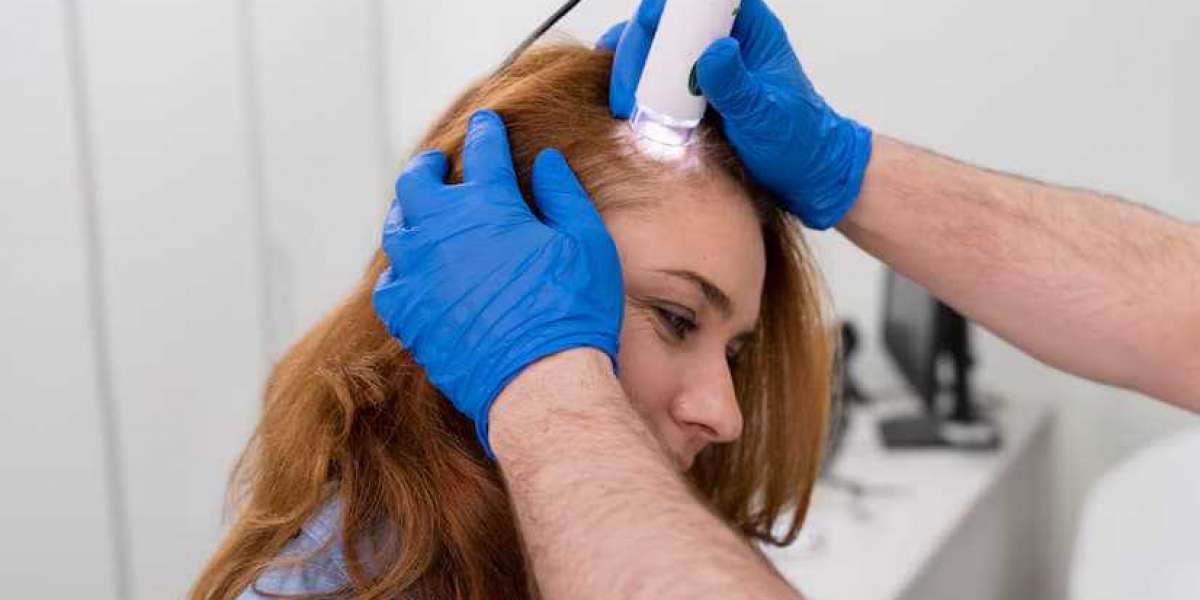In recent years, the quest for effective hair restoration solutions has led many to explore innovative treatments like laser hair growth. As individuals grapple with hair loss for various reasons—be it genetics, hormonal imbalances, or environmental factors—the need for reliable and non-invasive options becomes increasingly apparent. Manchester, a vibrant city known for its cutting-edge medical practices, has seen a surge in clinics offering laser hair growth treatments. This article delves into the science behind this technique, its effectiveness, and what patients can expect from their journey toward revitalized hair.
Understanding Hair Loss: The Need for Solutions
Before diving into the mechanics of laser hair growth, it is essential to understand the reasons behind hair loss. Hair loss can occur due to a myriad of factors, including genetic predisposition, stress, medical conditions, and even dietary deficiencies. The most common form of hair loss is androgenetic alopecia, often referred to as male or female pattern baldness. This condition affects millions worldwide, leading to thinning hair and bald patches that can significantly impact self-esteem and confidence.
With the increasing prevalence of hair loss, several treatment options have emerged. Traditional methods, such as medications and hair transplant surgeries, have long been in use, but many individuals seek non-invasive alternatives. This is where laser hair growth therapy has gained traction, as it promises to stimulate hair follicles and promote hair growth without the need for surgery or extensive downtime.
The Science Behind Laser Hair Growth
At its core, laser hair growth therapy utilizes low-level laser therapy (LLLT), a non-invasive treatment that employs specific wavelengths of light to stimulate hair follicles. The underlying principle is that this light energy penetrates the scalp and enhances blood circulation to the hair follicles, promoting cellular activity and stimulating hair growth.
Studies have shown that LLLT can increase the production of adenosine triphosphate (ATP), the energy currency of cells. This boost in ATP production helps to rejuvenate dormant hair follicles, leading to thicker and healthier hair. Additionally, the process may reduce inflammation in the scalp, creating a more favorable environment for hair growth.
Clinics in Manchester often employ advanced laser devices designed to deliver precise wavelengths of light to the scalp. These devices may come in the form of laser caps, helmets, or handheld devices, allowing for flexibility and comfort during treatment sessions. The treatment is typically painless, with most patients describing a gentle warming sensation on the scalp.
The Treatment Process: What to Expect
For those considering laser hair growth therapy, understanding the treatment process is crucial. Initially, patients will undergo a thorough consultation with a qualified practitioner who will assess their hair loss condition and determine the most suitable treatment plan. This personalized approach ensures that each individual receives tailored care based on their unique needs.
Once the treatment plan is established, patients can expect a series of sessions, usually lasting around 20 to 30 minutes each. Most clinics recommend a regimen of two to three sessions per week for optimal results. Throughout the process, patients are encouraged to maintain realistic expectations, as noticeable results may take several weeks to months to manifest.
It is also important to note that laser hair growth therapy is typically safe for most individuals. However, those with certain medical conditions or scalp injuries should discuss their eligibility with a practitioner before starting treatment.
Benefits of Laser Hair Growth Therapy
One of the most significant advantages of laser hair growth therapy is its non-invasive nature. Unlike surgical options, which often require significant downtime and carry inherent risks, LLLT allows patients to resume their daily activities immediately after treatment. This convenience makes it an attractive option for busy individuals who cannot afford to take time off for recovery.
Another notable benefit is the lack of side effects associated with laser hair growth therapy. While some patients may experience mild scalp sensitivity, this is generally transient and resolves quickly. This stands in stark contrast to some topical treatments or medications that may lead to unwanted side effects, such as itching, redness, or even systemic reactions.
Furthermore, numerous clinical studies have demonstrated the efficacy of LLLT in promoting hair growth. Research indicates that many patients experience an increase in hair density and thickness after completing a course of laser hair growth therapy. This success is often attributed to the treatment's ability to revitalize and awaken dormant hair follicles, leading to a fuller head of hair over time.
Real-Life Success Stories: Transformation Through Treatment
The transformative power of laser hair growth therapy is best illustrated through the stories of individuals who have experienced remarkable results. Many patients report feeling disheartened by their thinning hair and the impact it had on their self-image. After committing to a laser hair growth regimen, numerous success stories emerge, showcasing individuals who have regained their confidence and embraced their newfound hair.
For instance, a 35-year-old woman, who had been battling thinning hair for years, decided to explore laser hair growth therapy after hearing positive feedback from friends. After consistent sessions over several months, she began to notice a significant reduction in hair loss and an increase in hair volume. The results not only improved her physical appearance but also had a profound impact on her overall self-esteem, allowing her to feel more confident in social situations.
Similarly, a middle-aged man who had experienced significant hair thinning attributed to genetic factors found hope in laser therapy. After a series of treatments, he reported not only a visible improvement in hair growth but also a renewed sense of pride in his appearance. Such stories highlight the effectiveness of laser hair growth therapy and its ability to change lives by restoring confidence.
Conclusion: Embrace the Future of Hair Restoration
In conclusion, laser hair growth in Manchester presents an innovative and effective solution for individuals seeking to combat hair loss. With its non-invasive nature, minimal side effects, and proven efficacy, laser hair growth therapy has emerged as a popular choice among those looking to rejuvenate their hair.
As individuals embark on their journey toward revitalized hair, it is essential to seek guidance from experienced professionals who can provide personalized care and support. If you are ready to take the first step toward restoring your hair and confidence, consider reaching out to Este Medical Group. Their team of dedicated experts is here to guide you through your hair restoration journey. Don’t let hair loss define you—embrace the future of hair restoration today!







